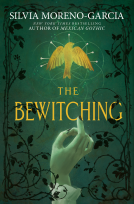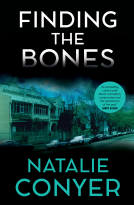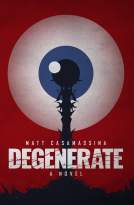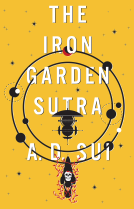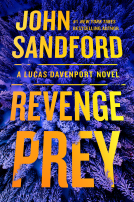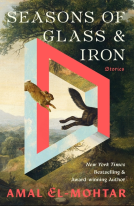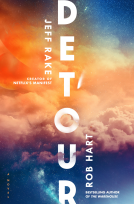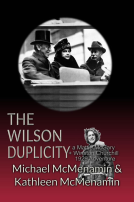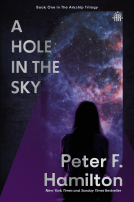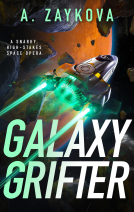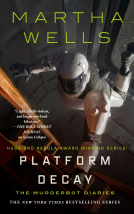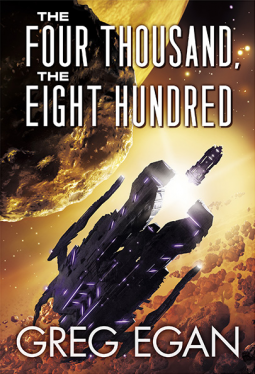
The Four Thousand, the Eight Hundred
by Greg Egan
This title was previously available on NetGalley and is now archived.
Send NetGalley books directly to your Kindle or Kindle app
1
To read on a Kindle or Kindle app, please add kindle@netgalley.com as an approved email address to receive files in your Amazon account. Click here for step-by-step instructions.
2
Also find your Kindle email address within your Amazon account, and enter it here.
Pub Date Nov 30 2016 | Archive Date Dec 01 2016
Description
Conditions on Vesta are quickly deteriorating—for one group of people in particular. The original founders agreed to split profits equally, but the Sivadier syndicate contributed intellectual property rather than more valued tangible goods. Now the rest of the populace wants payback. As Camille travels closer to Ceres, it seems ever more likely that Vesta will demand the other asteroid stop harboring its fugitives.
With “The Four Thousand, the Eight Hundred,” acclaimed author Greg Egan offers up a stellar, novella-length example of hard science fiction, as human and involving as it is insightful and philosophical.
Advance Praise
“Readers who found Egan’s dense Orthogonal trilogy rough going will be pleasantly surprised by this intriguing novella, which successfully incorporates hot-button issues of intellectual property rights and government reparations for systematic bigotry into a far-future SF story. This is top-notch thought-provoking and suspenseful space opera, with impressively effective worldbuilding…”
From Locus:
“Egan’s relentless pursuit of the implications of his givens, his refusal to palm cards, to handwave away rational or irrational human forces (any more than the laws of physics), gives his story a terrible grace and gravity. These events, like equations, have solutions, but not resolutions – at least, none that offer comfort.”
Available Editions
| EDITION | Hardcover |
| ISBN | 9781596067912 |
| PRICE | $40.00 (USD) |
Average rating from 20 members
Featured Reviews
 Reviewer 230978
Reviewer 230978
The Four Thousand The Eight Hundred by Greg Egan- On the human colony Vesta, political uprising spells trouble for a group of population sharing a historical commonality with the beginnings of the space habitat. Did their ancestors take unfair advantage of their expertise and bully their way into a lofty position? Now it's down to terrorist tactics and heart-stopping escapes among the tones of minerals sailing through space to another habitat. On Ceres, another human outpost, the port director is given a choice, save the eight hundred people fleeing the political turmoil on Vesta, or save the four thousand refugees strapped to gigantic rocks sailing their way. Always entertaining and thoughtful, Greg Egan's hard science and sociological insights feed directly into an engaging story. My only complaint is I want more and you will too.
 Christopher M, Reviewer
Christopher M, Reviewer
The Four Thousand, The Eight Hundred is a sci-fi novella by Greg Egan. It’s rather dense, exploring the themes of otherness, of democracy, disenfranchisement, and the role of a moral centre. It also talks about asteroids used as building materials, and explores the social norms of societies on other worlds. Yes, that does mean rather a lot is going on.
There are two worlds on display here – one a seemingly egalitarian society, work apportioned to those who need it, and another, where, a century after settlement, there’s question of debt. The latter is intriguing. In a society where the founders wealth was measured in the tonnage they could bring into orbit, and then to the moon they were colonising, the intangible is, understandably, less visible. But there is a minority in this novella, descendants of founders who sold their intellects, who held patents on mining drills, on methods of extraction, and used that leverage to be part of the original landing team.
A century later, a minority group has pushed, and pushed, to look on the descendants of those users of intellectual property as freeloaders. The text is looking at the way society deals with pressure – in this case, perhaps, by creating a sense of otherness, by legitimising discontent with certain aspects of that society. The question of whether those descendants of intellectual ‘pirates’ owe a debt is thrown open to the popular vote – and is approved by a slim margin. This may reflect concerns in contemporary politics, but it also allows the text to explore the concerns of the tyranny of the majority. This is a story which is exploring the strengths and weaknesses of systems, but also those of people. As a ballot measure to declare a minority of the population on one moon in debt to the others gathers pace, there’s a feeling of disbelief, then acceptance…and then a reaction, a counter reaction, and an escalating process of havoc.
Looking in through the window of contemporary politics, this is well, and neutrally done - where the characters struggle against an injustice, it seems clear to them that it is one (and indeed, is portrayed to the reader in this way). The majority of the populace, however, are not portrayed as malevolent, merely acting on opinions which impact those around them. In this space, there is also sanctuary – the other moon, the duo pushing ice and building material back and forth in a ring of trade. Here, things are different – at least in that they’re not fighting amongst themselves. Here they accept the “riders”, individuals entering a hibernation state, strapped to an asteroid, risking destruction whilst seeking sanctuary. It’s a world which, if not equal, is certainly not self-harming in an orgy of otherness, as we watch their cousins do.
The characters – well, I would have liked more space for them here. That said, given the length of the novella, they do well enough. There’s the member of a minority, gently sucked into actions that they don’t entirely agree with, feeling their way along the process of escalation before absconding. There’s the third party, not immediately impacted, but with an increasing zeal. And there’s those looking in from the outside, sorrowful, trying to put some of the pieces back together again afterward. If I didn’t see enough of the protagonists, they were present enough in the text to feel genuine, to add a sense of humanity to a piece of sci-fi which is largely driven by social issues – by focusing those issues down, and giving us a view of their impact on the individual.
The plot looks at the rise of intolerance in one of the two moons, of the way in which part of their own population is slowly disenfranchised, and then reacts. Of the way society reacts to that reaction, slowly driving both parties to extremes. But it’s also a story of people fleeing that society, of having the personal courage to strap themselves to revolving pieces of rock and throw themselves into an interstellar void, with a chance at a better life at the end. There’s also the view from the outside, as a member of the uninvolved interacts with an escapee, and draws their own moral lines, perhaps not in line with their social expectations, but in line with what they consider human – a discussion which can be opened with every reader, that. Not where you draw the line, but whether the line must, at some stage, be drawn.
In any event, this is an interesting piece of sci-fi. It uses its short length to full effect, drawing a plausible universe, one where the impact of character’s choices will hit the reader just as ahrd. It’s looking at some of the issues which affect us as societies, and exploring how those issues might play out in a future context, It’s clever work, ad rewards close reading. If you’re in the mood for a read which is challenging, and encourages reader engagement in a plausible sci-fi premise, then this is worth looking at. It’s short, but packs a serious narrative and emotional punch.
Readers who liked this book also liked:
Amal El-Mohtar
General Fiction (Adult), Romance, Sci Fi & Fantasy
Michael McMenamin & Kathleen McMenamin
General Fiction (Adult), Historical Fiction, Mystery & Thrillers
